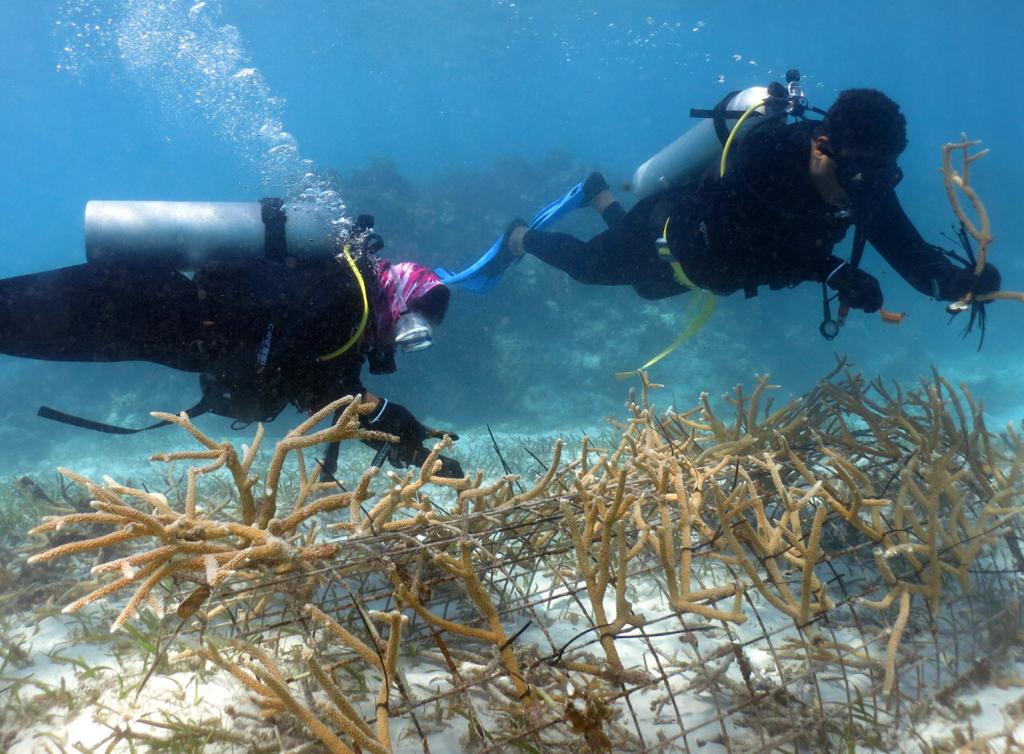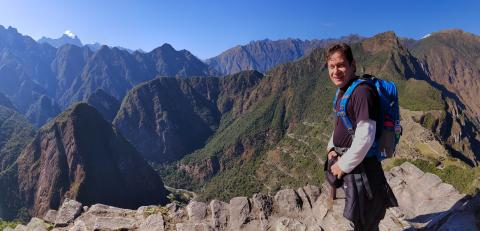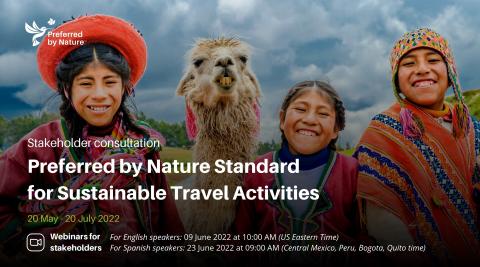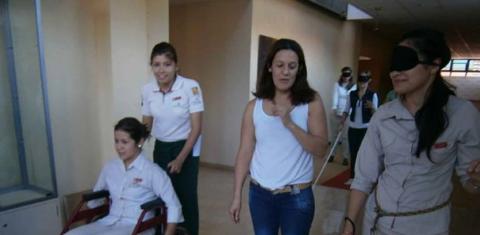Roadmap to sustainability: A look into Catalonia Hotels & Resorts' responsible practices
From small steps in reducing energy consumption to participating in biodiversity conservation projects, Catalonia Hotels & Resorts has redefined what it means to be a responsible and environmentally conscious hospitality business.
Can sustainability and luxury coexist? This hotel proves that they can. Starting off as a chain of family hotels in Barcelona in 1983, Catalonia Hotels & Resorts has become one of the largest hotel chains in Spain today.
The company has 72 locations in more than 20 countries: 57 hotels in Spain, 8 resorts in the Caribbean, 1 city hotel in the Dominican Republic and some others in European cities.
The driving force
Catalonia is committed to promoting sustainable development as a means of mitigating the adverse effects of climate change. They emphasise three key areas: economic growth, social development and environmental conservation.
The company aims to create profitable operations that simultaneously protect ecosystems and biodiversity, minimise negative impacts, and promote the well-being of communities in the region where they operate. Catalonia has taken significant steps towards achieving these goals.
"The growing concern about climate change and environmental degradation prompted us to take some significant actions and make efforts for each of the pillars in collaboration with other departments of our organisation under Corporate Social Responsibility initiatives that are aligned with the Sustainable Development Goals," said Sonia Serna, Quality Manager, at Catalonia Hotels & Resorts.
Bringing solutions to the table
No path is easy when it comes to embarking on a journey to achieve something. This sentiment was felt at Catalonia Hotels & Resorts, where the most challenging obstacle was eliminating the use of plastic in all hotel operations and replacing it with alternative materials. However, with strategic planning and consultation, they were able to develop workable solutions for this problem. This led to the successful launch of the "no single-use plastic" project across all its hotel chains.
Some of the specific actions taken include distributing 99% of products in bulk, such as gel or shampoo dispensers, using compostable bags, recyclable toilet bags, and no-use bags in canisters, as well as the use of fabric bags in shops, laundry, valet and rooms. The company also uses eco-friendly utensils made of sustainable materials as substitutions for individual plastic products in breakfasts.

"In the Caribbean, Catalonia Hotels & Resorts has started a large project on water bottling plants where we will refill our own bottles using our treated water plant. This will help us get rid of the many plastic bottles we use in our rooms,” explained Sonia.
“The activity is already taking place in all our Mexico resorts and in some hotels in the Dominican Republic. Furthermore, in Europe, we are exploring the opportunity to work with a company to install water machines with taste-elimination filters to treat water and start using glass bottles at events," added Sonia.
Small steps lead to bigger changes, and the same holds true for Catalonia. One of the important indicators of sustainability parameters is reducing excess energy consumption and saving electricity. Catalonia has made efforts to achieve this by implementing changes to its operational practices, such as using LED lights in most of its hotels, installing detection sensors in halls, and installing flow reducers in washbasins and sinks, including double-flush toilets.
"The sustainable infrastructure of the Grand Catalonia Costa Mujeres, Mexico, is characterised by making the most of the site's location and applying multiple resource-saving strategies and eco-technologies. It integrates and uses renewable energy thanks to its photovoltaic panels, sanitary furniture, and efficient equipment that uses and reduces water consumption," explained Sonia.
One of the bottlenecks for Catalonia Hotels & Resorts is procuring low-impact products from sustainable sources.
"At some destinations, it is difficult to find suppliers that can provide or manufacture these products, which often means paying high prices. To overcome this issue, we have signed corporate-level agreements with these suppliers to find collaborative solutions. However, on many occasions, we still have observed price differences," stated Sonia.
To achieve long-term results and impact, it is crucial for tourism organisations to develop and promote their culture, motives and efforts to internal and external stakeholders.
"We are continuously working to strengthen and promote our sustainability philosophy among our employees, guests, collaborators and partners, so they can understand the meaning of their actions within the sustainability programme and together we can bring desired changes," said Sonia.
Environmentally and socially responsible
Catalonia has taken several initiatives that demonstrate their commitment to the environment and people. They have contributed to coral barrier recovery through nurseries at their hotels in Bávaro and Bayahibe where corals reproduce and are later transplanted into the natural environment. Their team was engaged in maintaining the existing structures as well as adding six new structures, bringing the total number of frames in the coral nursery to sixteen, and seeding them with huge coral fragments. Other actions include the creation of apiaries, one in Playa Maroma, Mexico and another in Bávaro. They also keep contact with companies specialised in marine regeneration, to evaluate collaborating opportunities with their Caribbean resorts.

They also have an energy cogeneration model with a private company that works with natural gas and diesel. The combustion emissions are reused to heat and cool the water in their two hotels in Bávaro.
Catalonia has a deal with the Environmental Law Institute and the National Aquarium to protect endangered species. Since 2020, four sea turtles have been freed from fishing nets and released back onto the beaches where they were found. They have also added beehives to their facilities to help bees survive and reproduce.
"As part of our programme to save and protect endangered plants, we collect seeds from the few Gaussia attenuata palms in the area. This is an endemic palm species that is in a vulnerable state of conservation. Subsequently, we reproduce them in our nurseries, and the plants are used in repopulation campaigns aimed at recovering the species," said Sonia.
The Friends Against Childhood Cancer Foundation (FACCI) co-hosts the annual Catalonia 5k Race with Catalonia, with the primary objective of raising funds for the treatment of pediatric cancer.
"We welcome people with hearing disabilities in our hotels, who perform optimally in public areas, kitchens, and laundry," added Sonia.
Several guest-engaging programmes have also been designed and executed in the Caribbean. Moreover, events related to the sociocultural sphere, such as NGO donations, collaborations with different entities in Christmas campaigns, assistance for social canteens, have been carried out in Europe and the Caribbean.
Catalonia also carries out several awareness and sensitisation campaigns for its staff and invests in their skill development to enhance their workplace performance. The core value of Catalonia is to prioritise the well-being of employees and promote a work-life balance to create a healthy and cohesive work environment.
What benefits does certification bring?
The Sustainability Travel Programme of Preferred by Nature provides tourism companies with an opportunity to achieve their sustainability goals and develop a management system that is environmentally and socially responsible.
The standard can assist tourism businesses by giving them a foundation to grow and expand their activities based on sustainability parameters.
“The standard includes a framework that provides them with adequate information and guidance, builds capacity, and strengthens them to improve their current way of working to reach sustainable goals," said Saúl Blanco Sosa, Director of the Sustainable Travel Programme at Preferred by Nature.
“Eight hotels from the Catalonia group have already received certification under the Preferred by Nature tourism standard, and some are still undergoing initial and subsequent assessments,” added Saúl.
Sonia sees that "the certification has made a significant contribution to establishing precise social, economic and environmental guidelines” that enable all players to manage their hotels and perform their respective responsibilities.
“Their involvement guarantees that its execution develops into a long-lasting management system as well," said Sonia.
"Our ECOCAT programme has benefited from the certification as well because new indicators have enabled us to quantify the range of our efforts and integrate additional ones. Additionally, it has helped with the development and management of sustainable solutions that enable us to reduce our impact on the environment," added Sonia.
Note: Cover photo courtesy of Catalonia Hotels & Resorts




